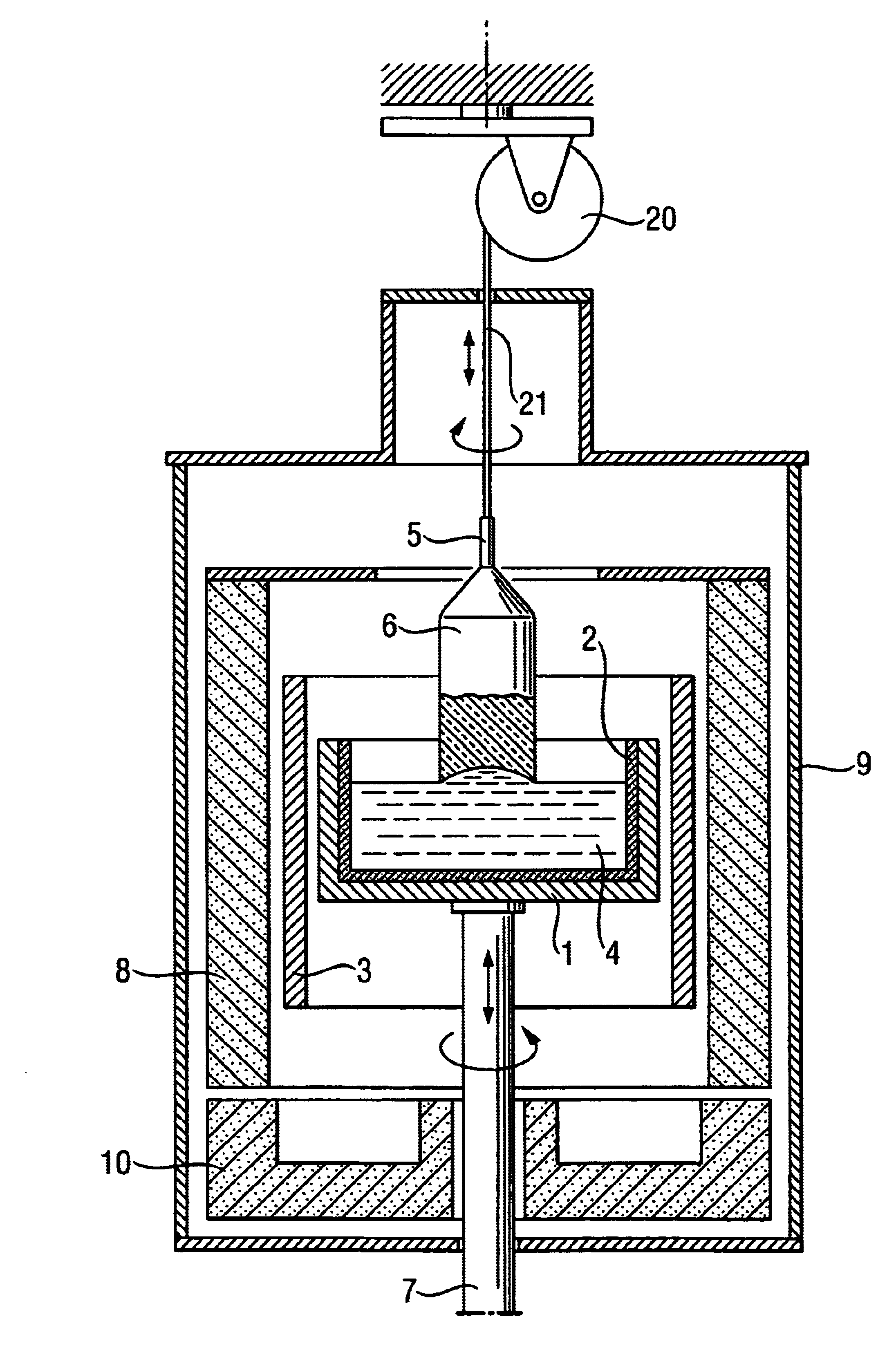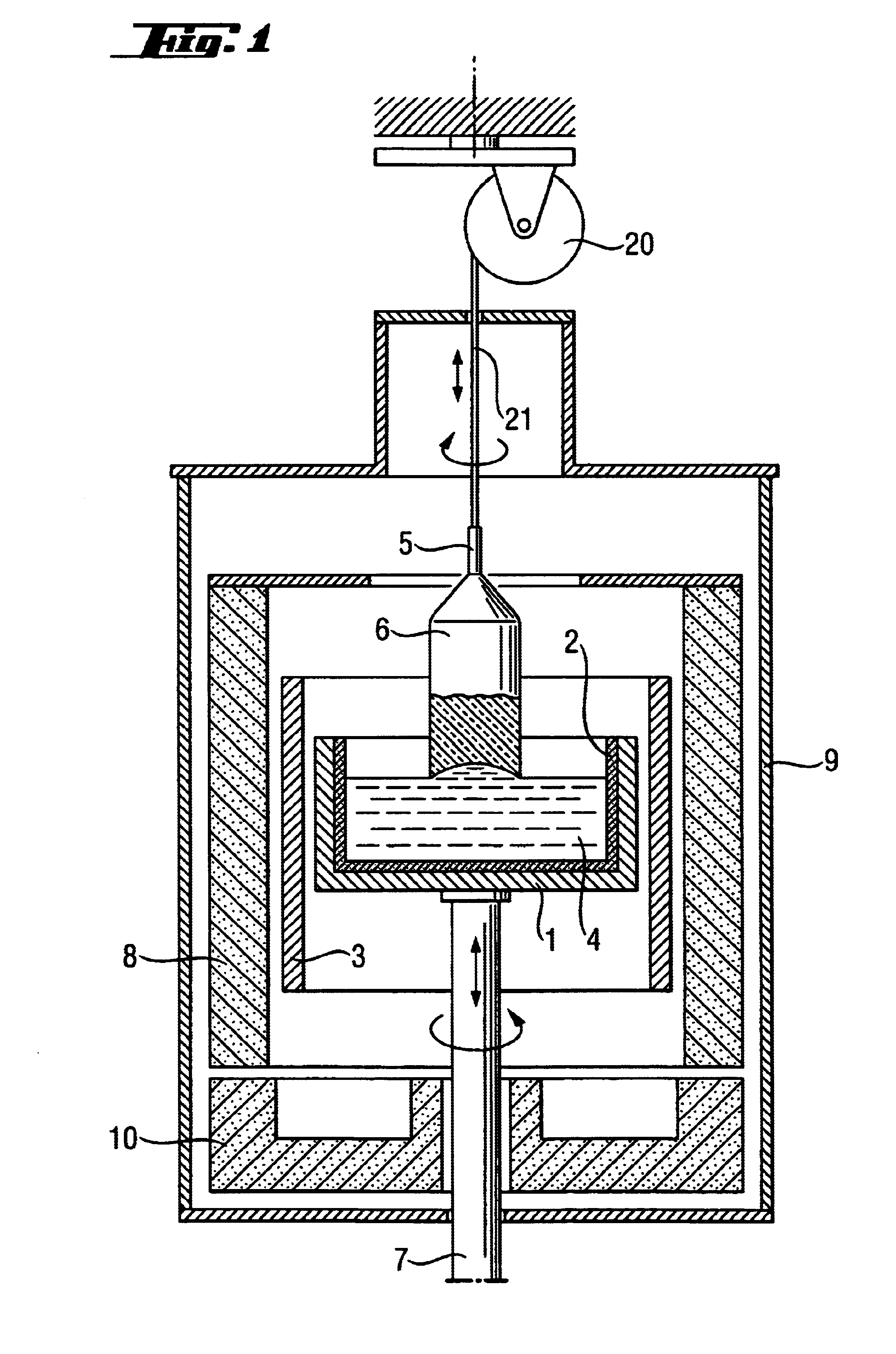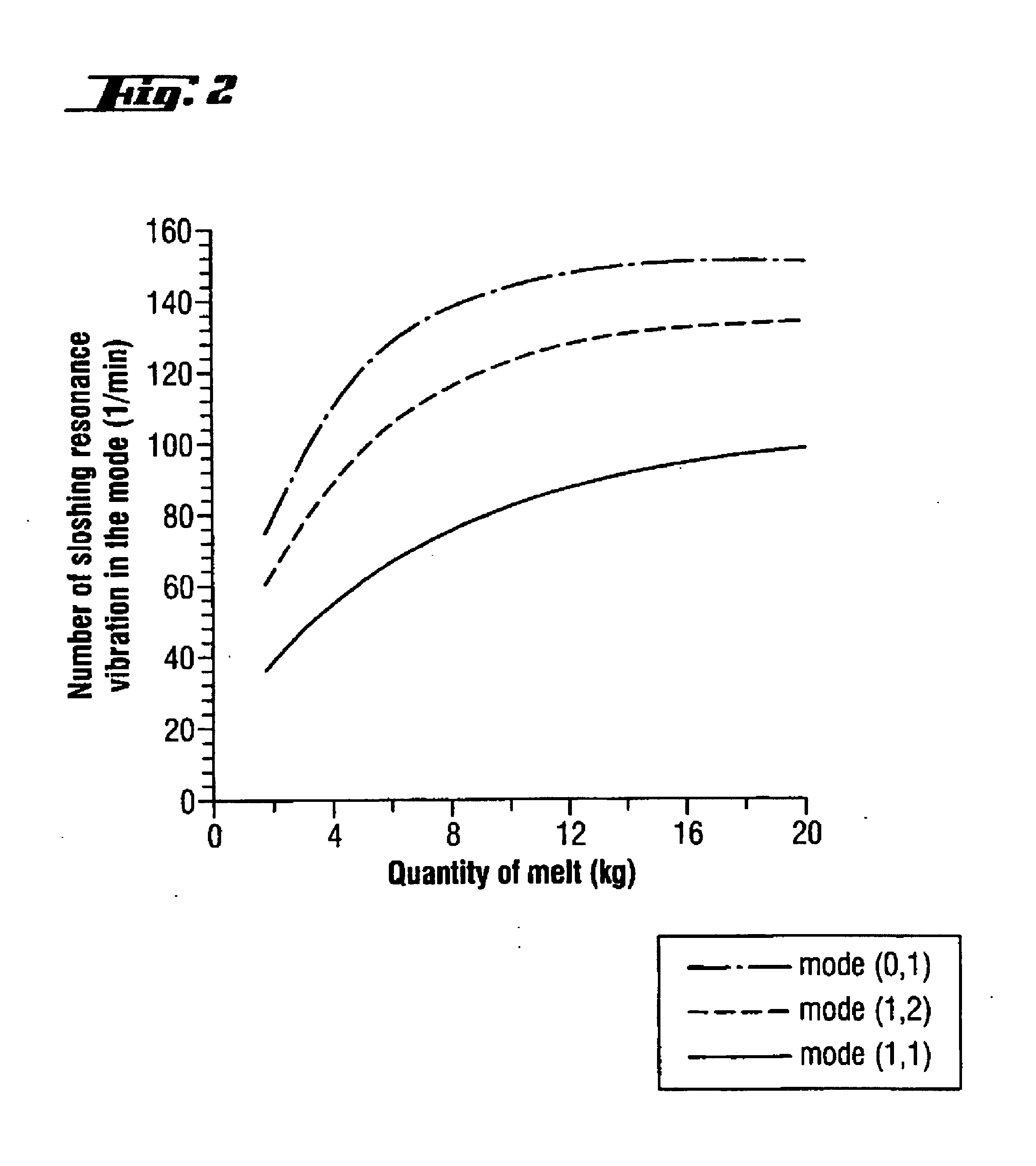Single crystal production method
a production method and single crystal technology, applied in the direction of crystal growth process, polycrystalline material growth, under protective fluid, etc., can solve the problems of product yield lowering, product yield lowering, and crystal cannot be used as a substrate for a semiconductor device, so as to improve the product yield
- Summary
- Abstract
- Description
- Claims
- Application Information
AI Technical Summary
Benefits of technology
Problems solved by technology
Method used
Image
Examples
embodiment 1
[0027]The silicon raw material of 20 kg is molten in a cylindrical crucible having an inner diameter of 150 mm and a depth of 150 mm, and a silicon single crystal is grown with the use of the seed crystal having the (100) orientation. The crystal is grown in such a manner that the crucible is revolved at the predetermined number of rotations of 10 rpm and the crystal is revolved at the number of rotations of 20 rpm in a direction opposite to the crucible, from the time when the seed crystal is dipped into the melt till the quantity of the melt reaches 13 kg. At this time, since the orientation of the seed crystal is (100), four projections due to the crystal habit lines each being approximately identical in size are formed at the edge of the growing interface of the crystal. And, the melt in the crucible has been continuously vibrated mainly with the number of vibrations as 120 rpm.
[0028]From the time when the quantity of the melt reaches 12.5 kg, as shown in Table 1, by reducing th...
embodiment 2
[0032]The raw material of 20 kg is molten in the cylindrical crucible having an inner diameter of 150 mm and a depth of 150 mm to grow a silicon single crystal with the use of the seed crystal having the (100) orientation. The crystal is grown in the following manner: the crucible is rotated at 10 rpm from the time when the seed crystal is dipped into the melt till the quantity of the melt reaches 12.5 kg, and the crystal is rotated at 20 rpm in a direction opposite to the crucible. At this time, the number of vibrations of the melt driven by the crystal is 120 rpm. When the quantity of the melt reaches 12.5 kg, the number of sloshing resonance vibrations in the mode (1,2) approaches 93% of the number of vibrations of the melt driven by the crystal.
[0033]Therefore, the number of rotations of the crystal and crucible are increased to 22 rpm and 12 rpm, respectively for 15 minutes (i.e. the time corresponding to the number of vibrations of the melt due to the sloshing, 1930=128.7 rpm×...
PUM
 Login to View More
Login to View More Abstract
Description
Claims
Application Information
 Login to View More
Login to View More - R&D
- Intellectual Property
- Life Sciences
- Materials
- Tech Scout
- Unparalleled Data Quality
- Higher Quality Content
- 60% Fewer Hallucinations
Browse by: Latest US Patents, China's latest patents, Technical Efficacy Thesaurus, Application Domain, Technology Topic, Popular Technical Reports.
© 2025 PatSnap. All rights reserved.Legal|Privacy policy|Modern Slavery Act Transparency Statement|Sitemap|About US| Contact US: help@patsnap.com



